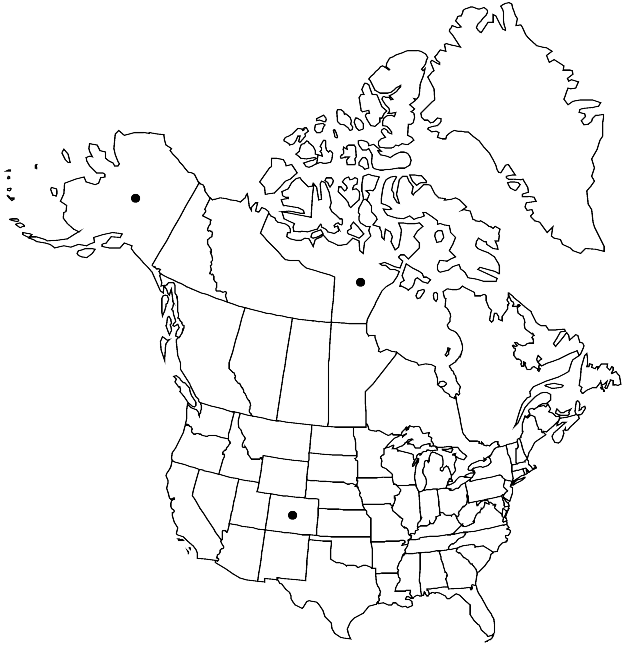Isopterygiopsis alpicola
J. Bryol. 15: 495. 1988.
Plants in thin to dense mats, light green to yellowish. Stems 1 cm, 1 mm wide, not complanate-foliate; epidermal-cells somewhat large, walls thinner, cortical cells in 1–several layers, smaller, walls thick. Leaves flaccid, erect-spreading, close to somewhat distant, ovatelanceolate, concave, 0.3–0.8 × 0.1–0.3 mm; margins plane to erect, serrulate distally; apex gradually acuminate; alar cells quadrate to short-rectangular, 14–28 × 7–9 µm; medial laminal cells 33–61 × 5–9 µm. Specialized asexual reproduction rarely present as propagula, 28–47 × 9–14 µm, of 2–5 cells. Sexual condition dioicous. Sporophytes unknown.
Habitat: Calcareous rock and cliffs
Elevation: high elevations (3000 m)
Distribution

Nunavut, Alaska, Colo., Europe
Discussion
Isopterygiopsis alpicola is an Arctic-alpine species that is rare or seldom collected. The species is known from Seymour Island in Nunavut, Arctic Village at Point Barrow in Alaska, and Summit County in Colorado. R. Tuomikoski (1939) was apparently the first to note the close relationship of this species to I. pulchella. The shorter, broader laminal cells and distinctly serrulate leaf margins of I. alpicola are the only notable differences distinguishing it from I. pulchella.
Selected References
None.